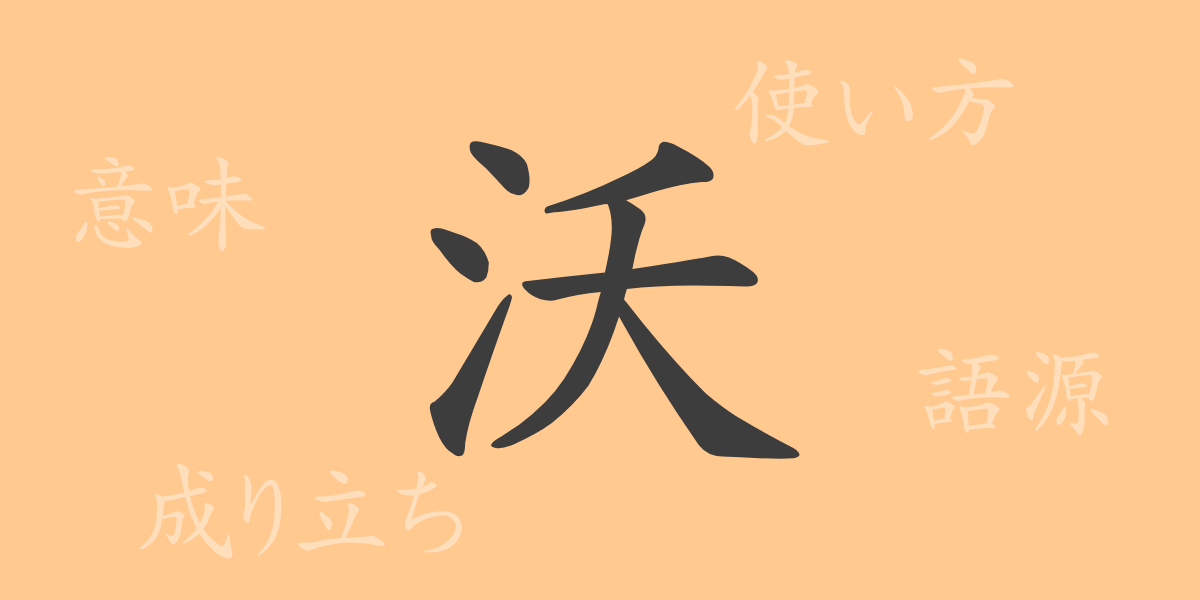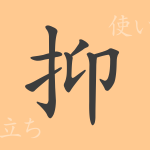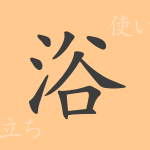Japan’s rich culture is imbued with numerous 漢字 characters. Among them, there are characters that we don’t often see in everyday life, yet they carry profound meanings. “沃” is one such character. In this article, we will delve into the origins, meanings, usage, readings, and compounds of “沃“, unveiling the full scope of this beautiful character.
Origins of 沃yoku (Etymology)
The kanji “沃” is composed of the radical “氵“, which means water, and the character “昜“, which represents the sun shining brightly. The combination of water and the sun evokes the image of fertile land being nourished. In ancient China, where agricultural culture was significant, “沃” was used as a symbol of richness and prosperity.
Meaning and Usage of 沃yoku
“沃” means “to enrich” or “to fertilize”. It is primarily used to describe fertile land or the act of enriching something. For instance, “沃土” refers to fertile soil, and “沃野” denotes a vast, fertile field. These terms can be found in literary works and specialized agricultural contexts.
Readings, Stroke Count, and Radical of 沃yoku
In Japanese, “沃” is read and written as follows:
- Readings: The on’yomi (音読み) is “ヨク“, and the kun’yomi (訓読み) are “うるお.す” and “うるお.う“.
- Stroke Count: It has a total of 8 strokes.
- Radical: The radical is “氵“, which is related to water.
Compounds, Idioms, and Proverbs Using 沃yoku
Compounds, idioms, and proverbs that include “沃” are quite rare and are seldom used in everyday conversation. However, the following compounds exist:
- 沃野: A vast, fertile land.
- 沃土: Fertile soil.
These terms are mostly used in literary expressions or specific fields.
Summary of 沃yoku
The kanji “沃” is a beautiful character that symbolizes richness and vitality, even though its usage frequency is low. It may not be familiar as a common kanji in Japan, but its profound meaning and history offer fascinating insights into understanding culture through language. We hope this article has helped you appreciate the meaning and charm embedded in “沃“.

























